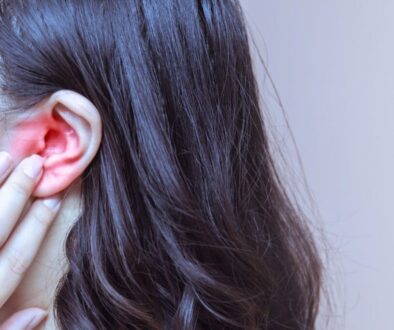Can You Take Probiotics on an Empty Stomach? A Science-Backed Answer

Published November 3, 2023
Probiotics are a great way to add to your health regime if you want to live healthier. They have a lot of benefits. It goes without saying that if you’ve never taken them, you’ve probably heard of them. They are famous, and we’re here for it. Besides, they deserve recognition.
Many people take these supplements to add beneficial bacteria to their gastrointestinal tract. They also support better digestive health. With this, a question commonly asked is, can you take probiotics on an empty stomach? Some also wonder what is the excellent time to take probiotics.
Keep reading as we’ll look into everything you need about probiotics intake. We’ll discover whether or not you should take them on an empty stomach. Wel’ll dive on what happens if you do. We’ll have you educated extensively. Let’s start.
What Are Probiotics?
Probiotics are comprised of good live bacteria and yeast that naturally reside in our body. Bacteria are typically perceived in a negative light. They are viewed as something that makes us sick. Yet, we constantly have two kinds of bacteria in and on our bodies: excellent and harmful bacteria.
Probiotics are made up of good bacteria. They help to sustain the healthy state of our body. They allow us to function correctly. This good bacteria supports it in many ways. One great example is fighting off harmful bacteria when we have too much of it. As a result, we feel better.
Benefits of Probiotics
1. Probiotics assist in balancing the friendly bacteria in your digestive system.
Probiotics include good bacteria. These are healthful live microorganisms. They primarily restore the natural balance of gut bacteria.
An imbalance means too many harmful bacteria. And it is a lack of good ones. It can happen due to illness. Also, medication such as antibiotics, poor diet, and more.
2. Probiotics can help prevent and treat diarrhea.
Probiotics are widely acknowledged for their ability to prevent diarrhea. They also decrease its severity.
Diarrhea is a usual side effect of taking antibiotics. It occurs because the medication negatively impacts the gut’s stability of good and bad bacteria.
Several studies affirm that probiotic use is connected with a reduced risk of antibiotic-associated diarrhea.
Probiotics can also assist with other forms of diarrhea. It is that are not linked to antibiotics.
3. Probiotic supplements improve some mental health conditions.
An increasing number of studies connect gut health to mood and mental health. Both animal and human studies confirm that probiotic supplements can better some mental health disorders.
A review of 13 human studies confirmed that supplementing with probiotics for 1-2 months can improve anxiety. They also helps with depression. They can also assist with bettering autism. Moreover, can support OCD. Finally, they enhance memory.
Another study affirms that those who take 100 grams of probiotic yogurt daily or take probiotic capsules experience benefits. It is for general health. More importantly, depression, anxiety, and stress.
4. Probiotics can help keep your heart healthy.
Probiotics may help sustain heart health. They do so by lowering LDL or bad cholesterol. They stabilize blood pressure.
5. Probiotics may lessen the severity of specific allergies and eczema.
Probiotics may also lessen the severity of eczema in children and infants. However, more research is needed.
6. Probiotics can help decrease symptoms of certain digestive disorders.
Over one million people in the US struggle with inflammatory bowel disease. It includes ulcerative colitis and Crohn’s disease. Probiotics have shown they can improve symptoms in people with mild ulcerative colitis. Yet, they appear to have little effect on symptoms of Crohn’s disease.
7. Probiotics may help boost your immune system.
Taking probiotics also decreases the likelihood and duration of respiratory infections. The probiotic Lactobacillus crispatus has also been show to decrease the likelihood of urinary tract infections in women by 50%.
8. Probiotics may support you in losing weight and belly fat.
Probiotics may aid in weight loss through many different mechanisms.
Some probiotics safeguard the absorption of dietary fat in the intestine. The fat is then excreted via feces rather than stored in the body.
Probiotics are shown to increase the gut microbiota richness. They also boost the abundance of potentially beneficial microbial species.
Can You Take Probiotics on an Empty Stomach? Why It’s Better to Take Probiotics on an Empty Stomach
Probiotics are most effective when consumed on an empty stomach. Taking them at least half an hour before a meal will decrease the time the good bacteria travels in our gut.
Timing matters in taking probiotics.
The natural habitat for probiotic bacteria is the small and large intestines. Those are where they act upon all their goodness. They act to boost our digestive tract and immune system.
They have to pass through our stomachs to get there, where the environment is very acidic.
Our stomach is designed to fight any bad bacteria and viruses that might make their way into our body by means of food and water. For the probiotic bacteria, this is terrible news. Prolonged exposure to stomach acid kills them.
The goal is to get probiotics through our stomach acid as fast as possible. To do this, it’s encouraged to take probiotics, ideally on an empty stomach. It should be 2-3 hours after your last meal. Also, 30 minutes before your next meal. In doing so, you help them move through the stomach as fast as possible.
Probiotics on an Empty Stomach: Is It a Good Idea?
Consuming probiotics on an empty stomach is ideal in most cases. Many manufacturers suggest different things. Yet, taking them about 30 minutes before food is best. Also, at least 2 hours after food. It is done so that the helpful microbes can reach the gut intact and do their wonders. There is also an evidence that taking these supplements just after food can lessen the number of probiotic bacteria in the gut.
What Happens if You Take Probiotics on an Empty Stomach?
Taking probiotics on an empty stomach cuts the time they take to reach the gastrointestinal tract, making them more effective.
How Long Should You Wait to Eat After Taking a Probiotic?
In general, it is recommended to wait 2-3 hours after eating before taking a probiotic. It allows the probiotic bacteria to be more effectively absorbed by the body.
When Is the Best Time to Take Probiotics?
The best time to consume a probiotic is first thing in the morning, prior to breakfast. Also, before going to sleep at night. Before a meal, it allows for optimal effectiveness. Consuming before bed also helps. The gut is relatively inactive during sleep.
Should I Take Probiotics With Food?
You can consume your probiotic supplements with food. If the probiotic manufacturer urges this, then follow their guidelines. Many probiotics work optimally when taken just before a meal. Still, all strains behave differently. For this reason, you should also do as advised on the packaging.
Bionaze: The Best Probiotic Supplement of 2023
Bionaze is a precisely crafted probiotic supplement for ENT and Sinus Care. Its blend of clinically studied probiotic strains helps better breathing. It also eliminates post-nasal drip.
It promotes overall well-being by helping you maintain a healthy fairness of bacteria in your upper respiratory area. Also, the patented strains in Bionaze boost our immune system. It promotes proper drainage and viscosity, thus lessening phlegm.
If your one to also struggle with halitosis caused by bacteria in your mouth, bionaze will improve your breath.

Frequently Asked Questions About Taking Probiotics on an Empty Stomach
1. Is it reasonable to take probiotics first thing in the morning?
Taking probiotics supplements first thing in the morning, before breakfast, can benefit gut health. It is due to the stomach being relatively empty. It allows the probiotics to reach the intestine without interference from food.
2. How do I know if the probiotics are working?
One marker of effectiveness in probiotics is having improved digestion. You would know if it’s working by noticing a reduction in digestive issues. You’ll find less bloating, gas, and irregular bowel movements.
3. When should you not take probiotics?
While probiotics can benefit many people, there are certain situations when it may be advisable to avoid or consult a healthcare professional before taking them. If you have a weakened immune system, critical illness, allergies, post-surgery, or have severe underlying health conditions, consult first with a healthcare professional.
4. Can probiotics work immediately?
Probiotics typically do not work immediately. Also, the effects can vary from person to person. It can take some time for them to colonize and establish themselves in the gut. This time is crucial for them to exert their beneficial effects. Some may notice improved digestion and other health conditions within a few days. For others, it may take weeks. Still, consistency is vital.
And now we’ve proven that you can take probiotics on an empty stomach. More so, this case is the best for you. For a high-quality probiotic supplement, shop at Bionaze. Take control of your health. Begin by adding beneficial bacteria to your health regime.
Benefit From The Latest Advancements In Probiotic Science With Bionaze
Bionaze is a proprietary blend of probiotics proven to promote ear, nose, and throat health, improve digestion, and support your immune system. The active ingredients BLIS K12, and BL-04 are considered among the best probiotics according to science.
Get 25% Off Your First Order when you use BIO25 at checkout!

This Content Has Been Reviewed For Factual Accuracy
This content has undergone thorough fact-checking by our team of internal experts. Learn more about the meticulous editorial standard for our website here.
ADVERTISEMENT

About The Author
I am Tracy Gorman, a seasoned writer passionate about creating helpful content. I can delve into any niche and produce valuable articles with my expertise. Beyond writing, I am an avid learner with a passion for digital marketing. During my leisure time, I enjoy immersing myself in literature, experimenting with fashion, staying active, exploring culinary delights, indulging in movies, savoring music, and socializing. And, it’s safe to say, I love cats!




